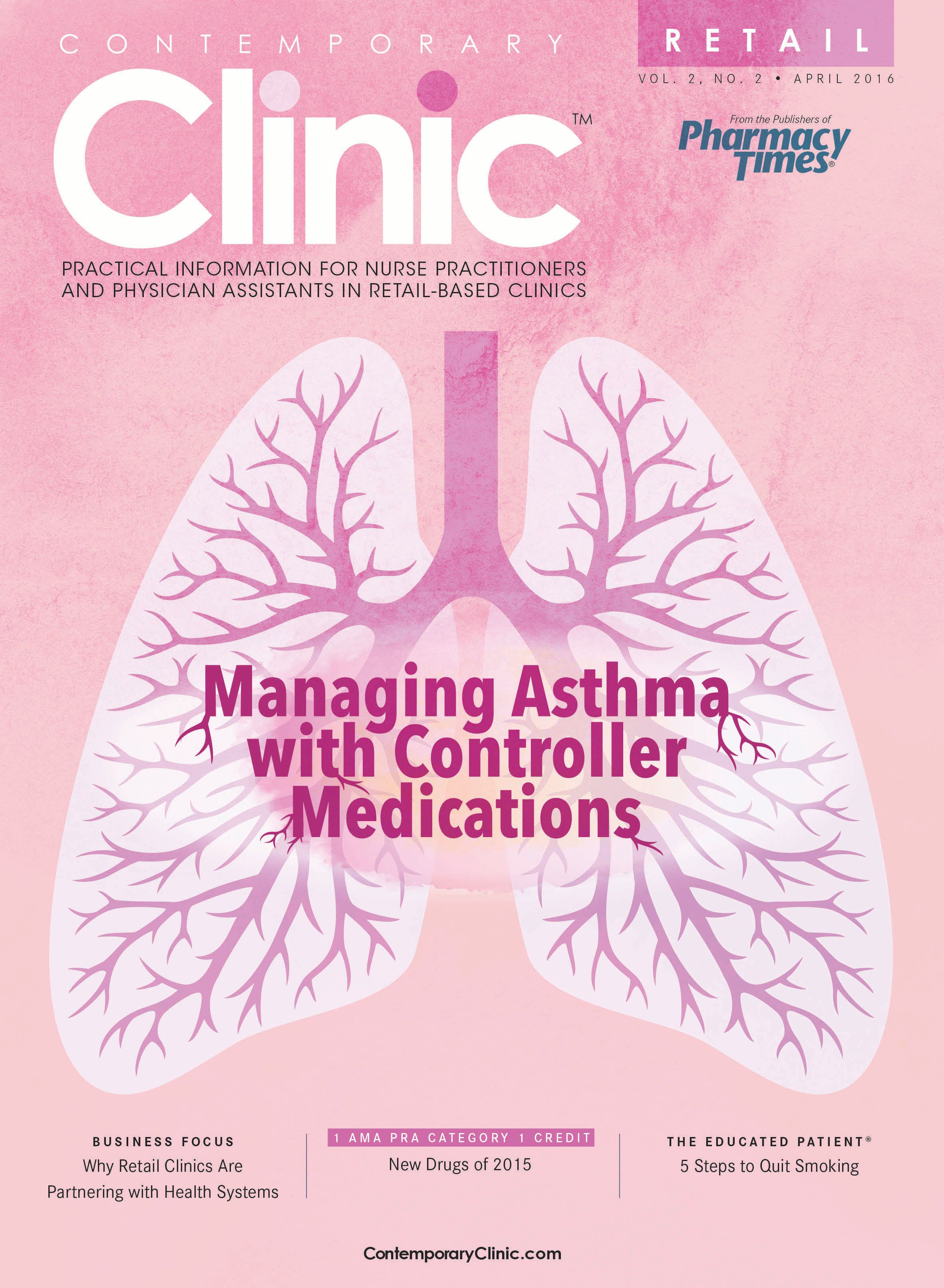Walmart Care Clinics’ Angela E. Dykes, APRN, FNP-BC
For Angela E. Dykes, APRN, FNPBC, few things are more rewarding than empowering her patients to take charge of their health.

For Angela E. Dykes, APRN, FNPBC, few things are more rewarding than empowering her patients to take charge of their health. Dykes is the lead nurse practitioner for the Walmart Care Clinic in North Augusta, South Carolina, where she finds joy in providing her patients with the knowledge and motivation they need to achieve their health goals. Throughout her time at the clinic, Dykes has strived to use every patient encounter as an opportunity to not only educate, but also learn.
“The patients who I have the privilege of serving teach me that everything is not black-and-white and not to be dissuaded by the different shades of gray,” Dykes told Contemporary Clinic. “There is always more than one way to reach a goal, and they teach me flexibility and how to meet them where they are.”
Although she has helped many patients since the North Augusta clinic opened, Dykes recalled her experiences with one particular patient whom she believes affirmed her vocation. The patient—a woman who had not seen a health care provider in nearly 10 years—visited the clinic shortly after it opened to check her blood pressure, and she chose to have a check-up while she was there. That decision may have ultimately saved her life.
“We discovered that she had tachycardia and hypertension, and we were able to get her in with a cardiologist for further evaluation. She was so grateful for the care and attention she received in our clinic and later told us that we saved her life,” Dykes explained. “Patients like her are why I became a nurse in the beginning and why I continue to pursue my passion of providing safe and effective health care.”
Reflecting upon her career, Dykes believes she has chosen a profession that allows her to put her compassion and drive to help others into practice, and she is equally confident in her belief that nurse practitioners—especially those in local clinics—are ideally placed to improve the health of those around them.
“Sometimes, we go through life and wonder what our purpose is, but I recognize my purpose and experience tremendous joy in serving others. Educating our community on health disparities and promoting healthy lifestyles are my passions,” Dykes said. “I am deeply encouraged by my profession and by what we can do collectively to make a difference within our communities and the world.”
Q: Why did you decide to become a nurse practitioner?A:I became a nurse practitioner because I wanted to make a greater impact on the lives of the individuals I serve. I felt that with health care being a fluid, continual evolution, I could see that being a nurse practitioner would afford me the opportunity to provide care and service in communities with growing needs.
Q: What do you think is the most important quality for a health care provider to possess?A:First, I would say care and compassion. Our patients come to us for guidance, assistance, and, at times, assurances. This requires us to be authentic in our care delivery and meet them where they are. However, I would like to add that as health care providers, I feel it is also our duty to possess the quality of fiscal management to assure that we are providing efficient, quality care.
Q: What do you think is the most important issue in the medical field today? Why?A:Accessibility is one of the most important issues in the medical arena today, mainly because there continue to be individuals within the community who have not sought medical care for various reasons. One reason is lack of understanding about the importance of prevention; the other reason is lack of affordability.
Q: What advice would you give to aspiring nurse practitioners?A:To be an advocate. Advocate for your patients and help them to be successful as best as they can. Don’t be afraid to stand up and let your voice be heard, and take ownership in your profession. We are always paving the way to make things better for those coming behind us.

Knock Out Aches and Pains From Cold
October 30th 2019The symptoms associated with colds, most commonly congestion, coughing, sneezing, and sore throats, are the body's response when a virus exerts its effects on the immune system. Cold symptoms peak at about 1 to 2 days and last 7 to 10 days but can last up to 3 weeks.
COPD: Should a Clinician Treat or Refer?
October 27th 2019The Global Initiative for Chronic Obstructive Lung Disease (GOLD) defines the condition as follows: “COPD is a common, preventable, and treatable disease that is characterized by persistent respiratory symptoms and airflow limitation that is due to airway and/or alveolar abnormalities usually caused by significant exposure to noxious particles or gases.â€
Diabetic Ketoacidosis Is Preventable With Proper Treatment
October 24th 2019Cancer, diabetes, and heart disease account for a large portion of the $3.3 trillion annual US health care expenditures. In fact, 90% of these expenditures are due to chronic conditions. About 23 million people in the United States have diabetes, 7 million have undiagnosed diabetes, and 83 million have prediabetes.
What Are the Latest Influenza Vaccine Recommendations?
October 21st 2019Clinicians should recommend routine yearly influenza vaccinations for everyone 6 months or older who has no contraindications for the 2019-2020 influenza season starting at the end of October, according to the Advisory Committee on Immunization Practices.
What Is the Best Way to Treat Pharyngitis?
October 18th 2019There are many different causes of throat discomfort, but patients commonly associate a sore throat with an infection and may think that they need antibiotics. This unfortunately leads to unnecessary antibiotic prescribing when clinicians do not apply evidence-based practice.
